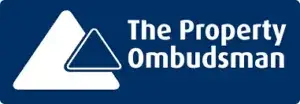Professional Drone Surveys in the Midlands & South Yorkshire
Fast, accurate, and affordable aerial inspections for residential and commercial properties. Get a clear view of your roof and building without the cost and risk of scaffolding.
View Pricing & PackagesYour Trusted Local Drone Surveyors
We deliver exceptional service and detailed reports you can rely on.
Specialist Surveyors
Our CAA-approved pilots are experienced in building inspections and survey-grade data capture.
Flexible Appointments
We work around your schedule to find a convenient time for the survey, minimising disruption.
Fast Turnaround
Receive your comprehensive report with high-resolution imagery within 48 hours of the survey.
Drone Survey Costs & Packages
Transparent pricing for our most popular services. Contact us for bespoke quotes for larger or more complex projects.
Residential Survey
Ideal for homeowners & homebuyers
£250 onwards
- Full Roof & Chimney Inspection
- High-Resolution Photo Set (4K)
- Short Video Flyover
- Digital Report with Key Findings
Commercial Survey
For business premises & industrial units
£450 onwards
- Everything in Residential, plus:
- Full Building Envelope Inspection
- Detailed Asset Condition Report
- Optional Thermal Imaging Add-on
Bespoke Projects
Land, construction & thermal
Custom Pricing
- Construction Site Progress Monitoring
- Topographical Land Surveys
- Thermal Imaging for Heat Loss
- Tailored to your exact needs
Our Simple Process
Getting your drone survey is quick and hassle-free.
Request a Quote
Contact us with your property details and requirements.
Schedule Survey
We'll find a suitable date and time for the flight.
We Fly & Inspect
Our expert pilot conducts the survey safely and efficiently.
Receive Your Report
Get your detailed digital report within 48 hours.
What Our Clients Say
"Fantastic service. The drone survey identified a roofing issue we never would have seen from the ground. Saved us thousands in potential repairs. Highly recommended."
John Smith
Homeowner, Sheffield
"Fast, professional, and the report was incredibly detailed. The team at New Homes Inspections made the entire process seamless for our commercial property portfolio."
Amy Williams
Facilities Manager, Nottingham
"We needed a quick roof inspection for a house purchase. They were able to fit us in quickly and the detailed photos were invaluable for our negotiations. Excellent value."
David Brown
Homebuyer, Derby
Frequently Asked Questions
What areas do you cover?
How long does a drone survey take?
Is it safe and are you insured?
Ready to See Your Property from a New Perspective?
Get a no-obligation quote today and discover any hidden issues before they become costly problems.
